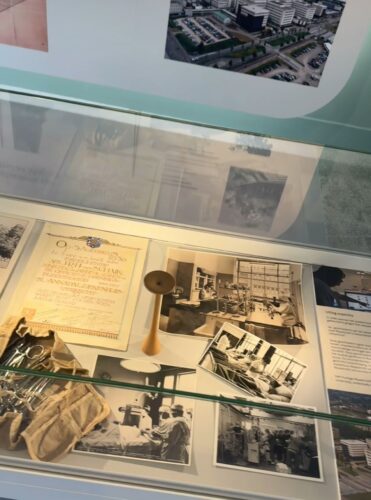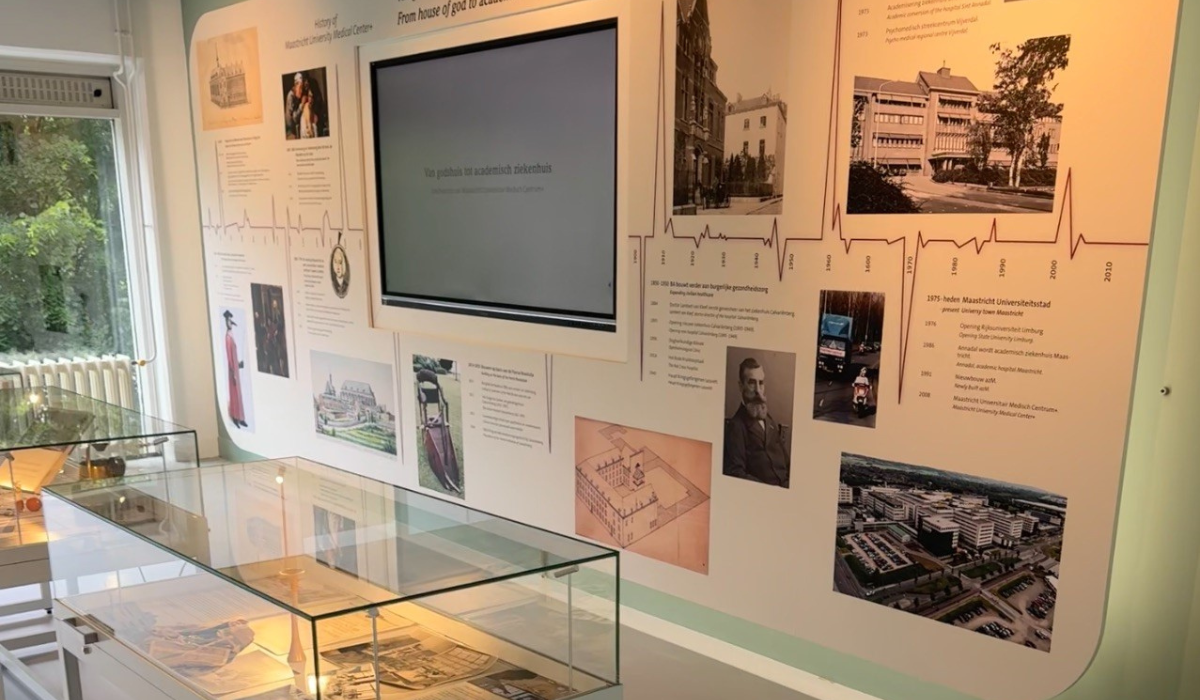Evolution of health care in Maastricht
Visitors will explore the evolution of healthcare in Maastricht, starting from the city’s earliest days. The story begins with the Sint-Servaasgasthuis, one of the oldest hospitals in the Netherlands, established in the tenth century. From there, it traces the continuous development through the Calvariënberg Asylum, the Sint-Annadal Hospital, and finally to the Maastricht Academic Hospital, now known as the Maastricht University Medical Center+ (MUMC+).

Highlights
The exhibition highlights key historical moments and figures, including pilgrims, garrisons, public anatomical lessons, and the pioneering medical advances made in the city. It also celebrates the efforts of nuns and brothers, the advent of the first X-ray in the Netherlands, and the work of courageous surgeons who laid the groundwork for modern medical practices.
Reinstalled for the Randwyck Library opening
Originally displayed on the 6th floor of the administrative building of the MUMC+, the exhibition has been reinstalled at the renovated Randwyck Library to celebrate its opening. The exhibition was curated by prof. Dr. Harry Hillen and prof. Dr. Jos van Engelshoven, and designed by Menno Roosjen. Their expertise has created a visually and intellectually stimulating experience for all visitors.
Maastricht UMC+ today
This exhibition also serves as a testament to the city’s enduring commitment to healthcare and education. The Maastricht UMC+ stands today as one of the eight premier academic centers in the Netherlands, dedicated to education, research, and top-tier patient care.
Opening hours
Experience the captivating history of Maastricht’s guest houses and hospitals at the renovated Randwyck Library between 10 June 2024 and 31 December 2024 during current opening hours. The exhibition is located in the information lounge area (at the entrance).
Historical medical books in UM’s Special Collections
The University Library holds an extensive collection of historical medical books in Maastricht University’s Special Collections, offering invaluable resources for both research and education. Such as early modern prints of anatomical atlases, including those by Vesalius, Loder and Albinus. In addition to a collection of anatomy books, the library also holds surgical works and books on herbal medicine containing illustrated herbal books by Dodoens, Nylandt and Munting. For an extensive list of historical medical books contact us via email or visit our website for more information on the Special Collections and on how to request books from this collection.


0 Comments